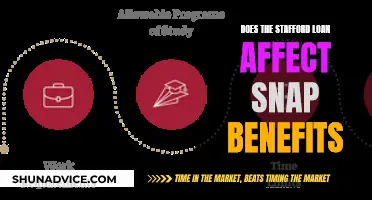
Defaulting on a car title loan can lead to the repossession of your vehicle, which can cause significant disruptions to your life. If you're facing repossession, there are several strategies you can employ to prevent it. Firstly, staying on top of your payments is crucial, even if it requires sacrifices in other areas of your budget. If you're unable to keep up with payments, negotiating with your lender to restructure your payment plan or refinance the loan can be an option. Additionally, exploring alternatives like bankruptcy, taking out a new loan with better terms, or paying off the loan through creative strategies may help you retain your vehicle. Understanding your rights as a borrower, the legal requirements, and repossession timelines is essential to making informed decisions and safeguarding your interests.
| Characteristics | Values |
|---|---|
| Bankruptcy | Chapter 7 bankruptcy may discharge the loan but often requires giving up the car. Chapter 13 bankruptcy can help you keep your vehicle by reorganizing payments. |
| Negotiate with the lender | Negotiate with your lender to set up a new payment plan or extension. |
| Refinance the loan | Take out a new, more affordable loan. |
| Pay off the loan | Pay off the loan in full. |
| State laws | In most states, lenders must inform you before they repossess your car. State laws also vary on the notices required before repossession. |
What You'll Learn

Negotiate with your lender
Negotiating with your lender is a key strategy to stop a title loan repossession. Here are some detailed steps and considerations to help guide you through the process:
Contact Your Lender:
If you're facing difficulties with repaying your title loan, don't wait until the last minute to take action. Contact your lender as soon as possible to discuss your situation. Be honest about your financial challenges and express your commitment to finding a solution.
Understand Your Rights:
Before negotiating, educate yourself about your rights as a borrower under state and federal laws. Know the specific requirements and procedures that your lender must follow during the repossession process. This knowledge will empower you to advocate for yourself effectively.
Propose Alternative Payment Plans:
Work with your lender to explore alternative payment plans that can help you avoid repossession. Consider options such as extending the loan term to lower your monthly payments or refinancing the loan at a lower interest rate. Remember that your lender may be more open to negotiation if you demonstrate a willingness to work with them.
Offer Partial Payment:
If you've missed several payments and your car is at risk of being sold, negotiate with your lender by offering a partial payment. Explain your financial situation and propose a realistic amount that you can pay immediately to show your good faith. This may help you regain some leverage and buy you more time to resolve the remaining balance.
Seek Legal Advice:
Consider consulting a bankruptcy attorney, especially if you're facing significant financial strain. They can guide you through the legal options available in your state, such as Chapter 7 or Chapter 13 bankruptcy, and explain how they may impact your title loan and overall financial situation. Remember that bankruptcy should be a carefully considered last resort due to its potential impact on your credit score and financial future.
Remember, the key to successful negotiation is open and honest communication with your lender. Show that you are committed to finding a mutually beneficial solution, and don't be afraid to advocate for yourself and explore all available options.
Understanding Loan References: What They Are and Why They Matter
You may want to see also

Refinance with a personal loan
If you are struggling with a title loan, refinancing with a personal loan can be a good option. This involves taking out a new, more affordable loan with better terms and using the funds to pay off the title loan. This can be a good strategy if you don't have the funds to pay off the loan in full but want to get out of debt faster and save money.
Personal loans are typically unsecured, meaning that you won't risk losing your car if you can't repay them. When choosing a personal loan, look for one with a low fixed interest rate, lower monthly payments, and a longer repayment period. Even if you have a low credit score, bad credit loan rates can be under 36%.
If you are considering refinancing with a personal loan, it is important to carefully compare your options and choose a loan with better terms than your current title loan. You may also want to consider other alternatives, such as debt consolidation, which can help you combine multiple debts into a single loan or payment plan, potentially lowering your overall interest rate or monthly payment.
While refinancing with a personal loan can be a good option, it is important to remember that taking on additional debt should not be taken lightly. Be sure to carefully consider your financial situation and budget accordingly to ensure that you can afford the new loan.
Additionally, keep in mind that title loans are typically not eligible for Chapter 7 bankruptcy, as they are considered secured debts. However, many states allow you to protect your car and avoid repossession by leveraging bankruptcy code exemptions, such as "redemption" or "reaffirmation". Consulting with a bankruptcy attorney can help you understand your specific options.
Becoming a Loan Signing Agent: Virginia Requirements and Steps
You may want to see also

File for bankruptcy
If you're considering bankruptcy as a way to stop a title loan repossession, it's important to understand the different types of bankruptcy and how they may affect your situation. Here are some detailed instructions on filing for bankruptcy in this context:
Chapter 7 Bankruptcy
Chapter 7 bankruptcy, also known as "liquidation bankruptcy," is designed to eliminate unsecured debts such as credit card balances, medical bills, personal loans, and promissory notes. While title loans are typically considered secured debts because they are tied to your vehicle, Chapter 7 bankruptcy may still provide some benefits. Even though the debt itself may not be discharged, the automatic stay that goes into effect immediately upon filing can temporarily stop collection efforts, including repossession. This gives you time to address the title loan, either by paying off the loan balance or negotiating an agreement with the lender. Keep in mind that to fully protect your vehicle under Chapter 7, the equity in your car must fall within your state's exemption limits.
Chapter 13 Bankruptcy
Chapter 13 bankruptcy is a restructuring of your debts, including secured debts like title loans and unsecured debts. While the debt is not discharged, Chapter 13 allows you to include the loan in a repayment plan, spreading out payments over a longer period, typically three to five years. This can lower your monthly payments and prevent repossession as long as you make the payments under the plan. Additionally, if your vehicle is worth less than what you owe on the title loan, you may be able to reduce the loan amount to match the vehicle's current value through a process known as a "cramdown."
Consult a Bankruptcy Attorney
It is highly recommended to consult an experienced bankruptcy attorney before making any decisions. They can review your specific situation, explain the different types of bankruptcy, and help you understand your rights and options. Bankruptcy involves court fees and attorney fees, so be sure to consider these costs in your decision-making process.
Construction Loan Land Purchase: What's the Deal?
You may want to see also

Make timely payments
Making timely payments is one of the most effective ways to prevent title loan repossession. Here are some tips to help you stay on track:
Understand the Importance of Timely Payments
Create a Realistic Budget
Budgeting is essential to ensure you can make your title loan payments on time. Analyze your income and expenses to allocate funds effectively. Identify areas where you can cut back on spending to prioritize debt repayment. This may involve making sacrifices in certain areas to stay on top of your payments.
Explore Refinancing Options
If you anticipate difficulty in making timely payments, consider refinancing your title loan. Refinancing involves taking out a new loan with more favourable terms, such as a lower interest rate or extended repayment period. This can reduce your monthly payments and make them more manageable.
Communicate with Your Lender
Open and honest communication with your lender is key. If you're struggling to make payments, contact your lender immediately. They may be willing to work with you to find a solution, such as negotiating new terms or creating a more manageable payment plan. Lenders often prefer to find alternatives to repossession, so don't hesitate to reach out.
Prioritize Debt Repayment
Until you have fully repaid your title loan, make it a priority in your budget. This may involve reducing discretionary spending or finding ways to increase your income, such as taking on a side job. Every on-time payment brings you one step closer to financial freedom and reduces the risk of repossession.
Eradicating Loan Shark Problems: Strategies for Financial Freedom
You may want to see also

Understand your rights
Understanding your rights as a borrower is crucial when dealing with a title loan and the potential risk of repossession. Here are some key points to be aware of:
In most states, lenders are legally required to notify you before they repossess your vehicle. This notice period is important as it gives you time to take action and potentially prevent repossession. The specific requirements and procedures for repossession vary from state to state, so be sure to familiarize yourself with the laws in your state.
As a borrower, you have the right to receive clear and timely communication regarding any default on your loan and the potential repossession of your vehicle. Lenders must follow specific legal procedures before they can take full ownership of your car, and they are required to keep you informed throughout the process.
You have the right to negotiate with your lender and discuss potential alternatives to repossession. This could include negotiating a new payment plan or refinancing the loan. Many lenders are willing to work with borrowers to find a solution that avoids repossession. Additionally, you have the right to explore other options, such as taking out a new, more affordable loan to pay off the title loan.
If you find yourself unable to meet your payment obligations, it is important to contact your lender immediately. They may be able to work with you to adjust your payment plan or find other solutions. Remember, staying on top of your payments is crucial, even if it means making sacrifices in other areas of your budget.
In some cases, bankruptcy may be an option to consider. Chapter 13 bankruptcy, in particular, can help you keep your vehicle by reorganizing your payments and spreading them out over a longer period. However, bankruptcy is a significant legal process with potential costs and consequences, so be sure to consult with an attorney to understand your specific rights and options.
Understanding Loan Collateral: True Statements Explained
You may want to see also
Frequently asked questions
Contact your lender immediately and try to negotiate with them or refinance the loan.
Borrowers have rights under state and federal law, including receiving timely and clear communication regarding the default and potential repossession, as well as options for recovering the vehicle post-repossession.
There are several ways to do this, including paying off the loan, refinancing with a personal or payday alternative loan, or negotiating new terms with the lender.
Filing for bankruptcy can temporarily halt the repossession process, giving you time to explore options such as setting up a repayment plan or negotiating with the lender.







